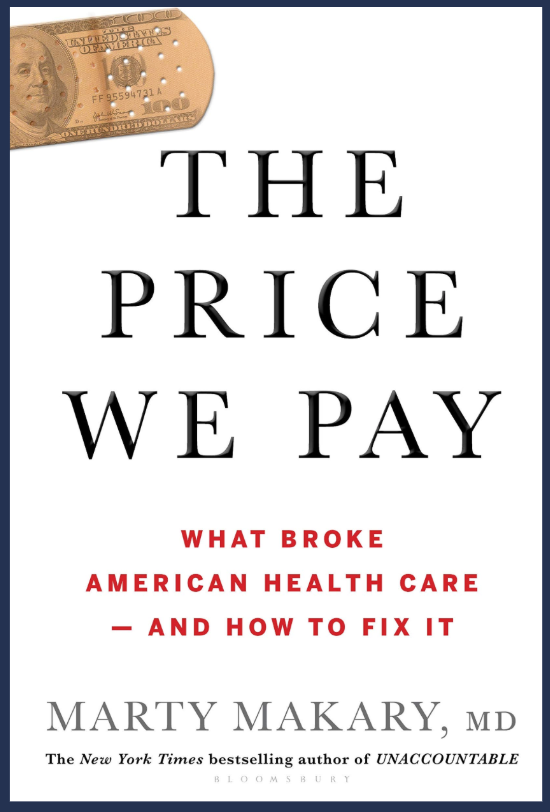
Book Review: 'The Price We Pay'

When I embarked on my journey in the U.S. a few years ago, one of the tips that was repeatedly given was to try not to call the ambulance service in the U.S. unless the situation is really urgent, otherwise the expensive bills of the ambulance ride would give you a different emergency – a financial one. Well I think the most intimidating part of this tip is not the price being expensive, it’s that the price being unpredictably expensive, or in other words, non-transparent. I cannot think of any business in US other than the health care industry that customers are not given the price information of the services before they purchase them, which often leads to surprise medical bills and even debts. Meanwhile, I don’t feel fully relieved by having insurance, as premiums keep rising every year, which keeps me wondering whether the premium increment is due to more patients getting treatments, or it’s simply because all the big players in the health care system are lifting the markup price for more profits? The book, The Price We Pay written by Dr. Marty Makary, a surgeon and professor at John Hopkins University, based on his research over the years, interviews with people, and field studies in 22 cities across the country. In it, he unveils a picture on how patients are vulnerable to the unnecessary or inappropriate treatments, how hard-working people are hit badly by the skyrocketed medical bills, how the big players manipulate the inflated prices, and how some challengers are now pushing for a free marketplace and transparent price. The problem will not be fixed overnight, but the book lets you know where you are in the game and where you can head to in the future.
There are some useful resources mentioned in the book that you can use to start choosing wisely for quality medical service at a fair price. I will list them below.
- Hospital Price Transparency Rule. The rule was enacted by Center for Medicaid & Medicare Services (CMS) since Jan. 1st, 2021, which requests that all hospitals in the U.S. to post the price information of their medical services online to the public. Though the rule does not apply to the practitioners operating outside the hospital scopes, it’s still a big step forward!
- Never pay your first bill. The book is written by the chief editor of The Price We Pay, it provides a more practical guidance on protecting yourself from predatory medical bills. It’s the next book on my read list.
- Sesamecare. A website where you can book appointment with doctors and most importantly, the prices are listed upfront and that’s all you need to pay. It’s the first direct-to-patient care marketplace.
- Sentinal Air Medical Alliance. A company where you can request air ambulance service without worrying about being over charged. They offer price quota in advance over which your bill will never exceed.
- Choose Wisely. If you want to have efficient conversations with your doctors and choose appropriate cares, this website might be a good place to start with.
- U.S. Preventive Service Task Force. If you would like to know whether a preventive care service is recommended or evidence-based, the website is a good resource.
- FAIR Health. A non-profit website where you can look up the average cost of certain medical services in your region. The website also provides educations on general health care issues.
- Florida Health Price Finder. A website that provides data on health care cost and quality, where you can look up the national, state and local prices.
- Healthwarehouse. Online pharmacy store. Do you know that purchasing medications without insurance often costs less than what you would pay with insurance? Check the independent pharmacies and grocery store pharmacies for better prices before you make the decisions.
- Quizzify. A corporate wellness program that educates over-treatment and dispels myths of healthy lifestyle. Here is a very useful tip on the website that teaches you how to avoid surprise medical bills in the emergency rooms.
- Some health care facilities that have received positive feedbacks from the author: Surgery Center of Oklahoma, Columbus Community Hospital, Oak Street Health, ChenMed, Iora Health, AIM Specialty Health.
- Some association and research organizations mentioned in the book: Free Market Medical Association, Restoring Medicine, Kaiser Family Foundation, High Value Practice Academic Alliance, Consumer Reports.
